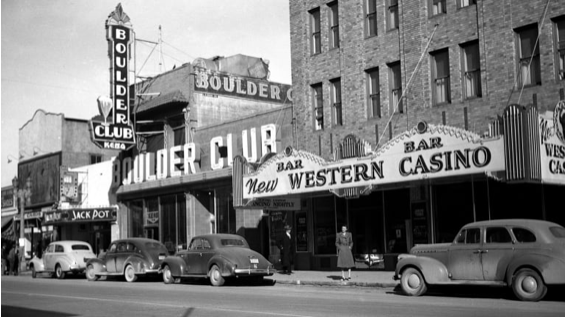Introduction
Over the last two decades, casinos have grown to be a major industry in the United States. Casino gambling was only legal in Nevada and Atlantic City, New Jersey, until the 1980s. Nearly 30 states have legalized casino gambling since then. Many states have approved commercial casino gambling because they see it as a means of spurring economic development.

Protection of gamblers, increased employment and increased tax revenue for state and local governments are the most widely perceived benefits. Increased fiscal pressure on state budgets, fear of revenue loss to neighbouring states’ casinos, and a more favourable public perception of casino gambling have all contributed to its acceptance.
Impact of Casino Legalization
- Casino Tax Revenue Is a Benefit
The amount of money that can be made by taxing casinos is enormous! Legalizing gambling is a no-brainer in and of itself. For any government, it’s a nice little cash cow. It’s common knowledge that the house always wins, and when you look at those mega casinos, you can tell they’re making a lot of cash. Casinos paying tax on their gross gaming revenue boosts many economies significantly (GGR).
Gambling taxes and GGR systems vary by country, but they are always a percentage of net profit. GGR can be as high as 83.5 percent in France! It’s much lower in gambling mecca Macau, at 39%, and the UK is in the middle, at 50%. Governments find it difficult to set these tax rates because they don’t want to discourage new business while also wanting to profit from it.
Surprisingly, Russia does not tax casinos at all. So, if you’re looking to open a casino, that might be the place to start. In addition to the tax revenue generated for the economy, the number of jobs created can be enormous. In the state of Nevada, for example, the gambling industry employed 166,741 people in 2018.
- Regulated Casinos Help Protect Gamblers
It cannot be overstated that people’s safety and security must always come first. Gambling is a divisive topic, but it will happen whether it is legal or not. When humans are forbidden from doing something, they become even more desirous of doing it. And if the law won’t allow it in a controlled manner, mobsters will gladly offer their services.

By forcing people to go underground for these activities, you are placing them in the hands of criminals, who are the real dangers. There would be no safeguards in place to protect people from being conned out of their life savings. Players are safe because they have access to a regulated online gambling market as well as legitimate land-based casinos. It is very difficult to find a good online casino, but it can be done thanks to the reviews on our website.
A perfectly safe gambling experience is provided by the Zodiac Casino which is a great example of this. It’s comparatively simpler to locate a licensed casino and play with the confidence that your funds will not be taken by criminals. When the market is regulated, reputable casinos can emerge and attract more customers. Any competitors are forced to follow suit, implying that the industry’s major players are law-abiding and dependable.
- Casinos Help Boost Tourism
Every year, millions of people from all over the world visit gambling havens like Las Vegas and Macau. Amazing casino comps attract high rollers from all over the world, who end up contributing a significant amount of money to the economy. The whales aren’t the only ones who make a difference. Families on vacation, bachelor/bachelorette parties, and wedding guests are all drawn to gambling destinations. The rise of casino tourism in places like Cambodia, Singapore, and the Philippines, as well as cruise ship gambling, is proving to be a boon to the industry. Where casinos do not have restaurants on site, tourists flock to nearby eateries and shops, causing a surge in nearby businesses.
It could also be argued that casino tourism promotes diversity. According to a report, many high rollers from China visit Australia, and casinos are hiring more Mandarin-speakers, or people from Mandarin-speaking countries, to work as dealers and hosts in order to make them feel more at ease.
Conclusion
There are two sides to every coin, and gambling is no exception. The problem of thrill addiction is a very real problem that affects millions of people. Is it possible that if gambling were made illegal, this addiction would vanish? It’s highly unlikely. With the ongoing debate over drug decriminalization, it’s clear that the law will never stand between the vice and its user.
At the very least, a regulated market ensures that funds are available to assist those in need. When something is illegal, an addict is often pushed to the margins of society, unable to seek the help they require. Regardless of the specific issues, casino gambling is likely to remain popular in the United States. The only question is how much it will grow in popularity in the future. When citizens and government officials debate the issues surrounding casinos and economic development, they should be aware of the topics presented here.






























































